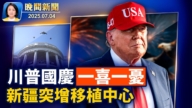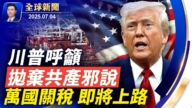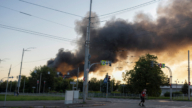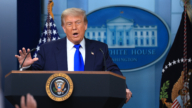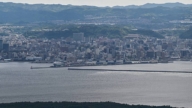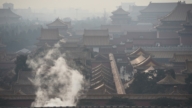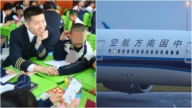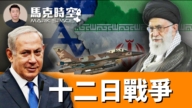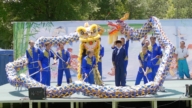【新唐人2014年05月13日讯】第24届“东盟首脑峰会”11号落下帷幕,虽然,越南和菲律宾都曾试图将南海主权争议带入峰会,但是闭幕会发表的《内比都宣言》并没有提到中国。有分析指出,东盟存在分歧,一些东盟成员国为了维护自身利益,不希望因为南海问题,影响了与中共的关系。
5月10号,“东盟首脑峰会”在缅甸首都内比都召开,据了解,会议召开的几天前,越南和菲律宾刚刚在有争议性海域与中共发生对峙。
越南总理阮晋勇在会上点名中共,据《美联社》取得的演讲稿,阮晋勇指责中共在位于西沙群岛的越南“专属经济区”内,架设一座钻油平台,严重威胁了越南的海上安全和航行自由,他呼吁东盟在会后的联合声明中,加入对南海问题的关注。
菲律宾总统阿奎诺三世也在峰会上提出中、菲两国的南海主权争议,他呼吁与会国家支持菲律宾透过国际仲裁解决争端。阿奎诺三世还强调,南海争议不可能单靠两个当事国的对话来化解。
虽然越南和菲律宾在峰会上联手攻击中共,试图将有关南海问题的表述塞入闭幕声明,不过,闭幕会发布的《内比都宣言》还是没有提到中国。
台湾“政治大学国际关系研究中心”主任严震生指出,东盟10个成员国在多个方面存在分歧。
台湾政治大学国际关系研究中心主任严震生:“南海的主权声索国当中,不是每一个东盟国家都在里头。第二个,各个国家跟中国经济互动的依存度状况也不太一样,有些国家可能跟中国经贸关系的密切程度,已经必须要保持跟中国友好的关系,第三个,他们对美国信任的态度,有些国家可能认为,美国在这个地方可以维持一个稳定的角色,有些可能不认为把美国扯进来,就一定能够制衡中国(中共)。”
旅美政论家伍凡:“其实东南亚联盟本身是一个政治集团,也是一个利益集团,但是每个人的利益不一样,尤其跟中国的关系都不一样,所以完全要用一个联盟的方式来处理南海领土问题,恐怕做不到。”
中共不仅在南海有争议性海域架设钻井平台,还派遣80艘军事和民事舰船进入这个海域,撞击越南船只,并一度向越南船只发射水炮。
在为期2天的东盟首脑峰会期间,越南首都河内等多个城市,都爆发了大规模的反中共示威集会。
严震生:“中国(中共)会跟越南起冲突,多多少少和越南不是美国的盟国有关,虽然(越南)跟美国关系已经改善了,但毕竟它不是像日本、南韩是美国的盟国,也不像菲律宾有特别的军事合作关系,所以比较让中国没有那么担心美国的直接介入。”
旅美政论家伍凡指出,中共当局为了转移目前国内民众对经济不佳,反腐不力等舆论压力,需要营造“紧张局势”。
伍凡:“会不会打战,现在很难预料,双方都不会让步,中国(中共)这次是有意要把事情炒起来,所以美国人讲你在挑衅,我想习近平是故意要挑衅,他就要走这个棋,他的目地第一步达到了。”
美国《华尔街日报》指出,在领土争端问题上,中共倾向于和具体国家逐个解决,而北京的那些对手以及美国,则希望通过多边机制来解决。但由于东盟所有决定都是协商做出,成员国很难说服组织对北京采取一致强硬的态度。
严震生:“过去从来没有一个东盟对南海主张统一的一个立场,因为只有部分国家跟中国有主权争议,一半没有,一半有,所以长期以来,他们回避了这个问题,那现在可能就必须要处理了,但是不是能够成功,我还是怀疑,因为你过去都没有处理,和平的时候不处理,现在发生冲突的时候来处理,我觉的比较难。”
10号晚间,中共外交部发言人华春莹表示,南海问题不是中国与东盟之间的问题,北京反对“个别国家”利用这一争端,来伤害中国与东盟的友谊与合作。
采访/朱智善 编辑/陈洁 后制/孙宁
The Association of Southeast Asian Nations (ASEAN) Declaration
Did Not Blame China to avoid Disagreement.
The 24th ASEAN summit came to an end on May 11.
The Naypyitaw Declaration didn’t mention China although
Vietnam and the Philippines had tried to bring the South China
Sea sovereignty dispute to the summit.
Some analysts pointed out that some ASEAN member countries
do not want the South China Sea issue to affect their relationship
with China and lead to disagreement.
May 10, the ASEAN summit is held in the capital of Myanmar, Naypyidaw.
It is known that Vietnam and the Philippines had just confronted
the Chinese Communist Party (CCP) in disputed waters
a few days before the meeting was held.
Vietnamese Prime Minister Nguyen Tan Dung blamed
China at the meeting.
According to the AP, Nguyen Tan Dung criticized CCP’s oil rig
in Vietnam’s exclusive economic zone in the Paracel Islands, which
is a serious threat to the security and freedom of Vietnam navigation.
He called ASEAN to add concerns over the South China Sea issue
in a joint statement after the meeting.
Philippine President Aquino III also mentioned the South China
Sea sovereignty dispute with China at the summit and called for
support to resolve disputes through international arbitration.
Aquino III also stressed that the South China Sea dispute cannot
be resolved by conversation between two parties.
The Declaration of Naypyidaw didn’t mention China although
Vietnam and the Philippines jointly attacked the CCP and tried
to insert the South China Sea issue into the closing statement.
Taiwan National Chengchi University Institute of International
Relations Director, Yan Zhensheng pointed out that the 10
ASEAN member countries have differences in many aspects.
Yan Zhensheng: “First, not every ASEAN
country wants to claim sovereignty over the South China Sea;
secondly, different countries have different economic interactions with
China, some might be closer; thirdly, different countries have
different trust in the US,
some don’t believe the US can counterbalance China."
US political commentator Wu Fan: “It’s impossible to deal with
the South China Sea issue by one union because ASEAN itself is
in fact a political group, an interest group which has different interests
and relationships with China."
The CCP not only set up a drilling platform in the South China Sea
but also sent 80 military and civil vessels into the waters to hit
and fire water cannon towards Vietnamese boats.
Large-scale anti-CCP demonstrations broke out in several cities
including Hanoi during the two-day ASEAN summit.
Yan Zhensheng: “The CCP can have conflict with Vietnam more
or less because Vietnam is not a U.S. ally although their relationship
has improved.
After all, it’s not like US allies such as Japan and South Korea;
nor like the Philippines that has special military cooperation to
possibly directly involve the US."
US political commentator Wu Fan pointed out that the Chinese
authorities need to create tension to divert people’s attention away
from the poor domestic economy and ineffective (action against) corruption.
Wu Fan: “It’s hard to predict whether there will be war because the
CCP intentionally hyped up this time.
I believe Xi Jinping attained his first target as the US said he was provoking."
US WSJ pointed out that the CCP tends to solve territorial disputes
one by one with the specific country; however Beijing’s
opponents and the US hope to address them through a multilateral mechanism.
However, it’s hard for the ASEAN member countries to take a tough
attitude on Beijing together because all decisions are by negotiation.
Upon learning that the Governor of Calif. was coming to visit,
Yan Zhensheng: “there has never been a unified standpoint on the South
China Sea from ASEAN, because only part of ASEAN has
sovereignty disputes with China.
They avoided this problem for a long time until the conflict happened.
However, I doubt if they can solve it because it’s even harder
than peace time now."
May 10 evening, Chinese Foreign Ministry spokeswoman Hua
Chunying said the South China Sea issue is not a problem
between China and ASEAN.
Beijing opposed an individual country to harm the friendship between
China and ASEAN using the dispute.
Interview/Zhu Zhishan Edit/Chen Jie Post-Production/Sun Ning


